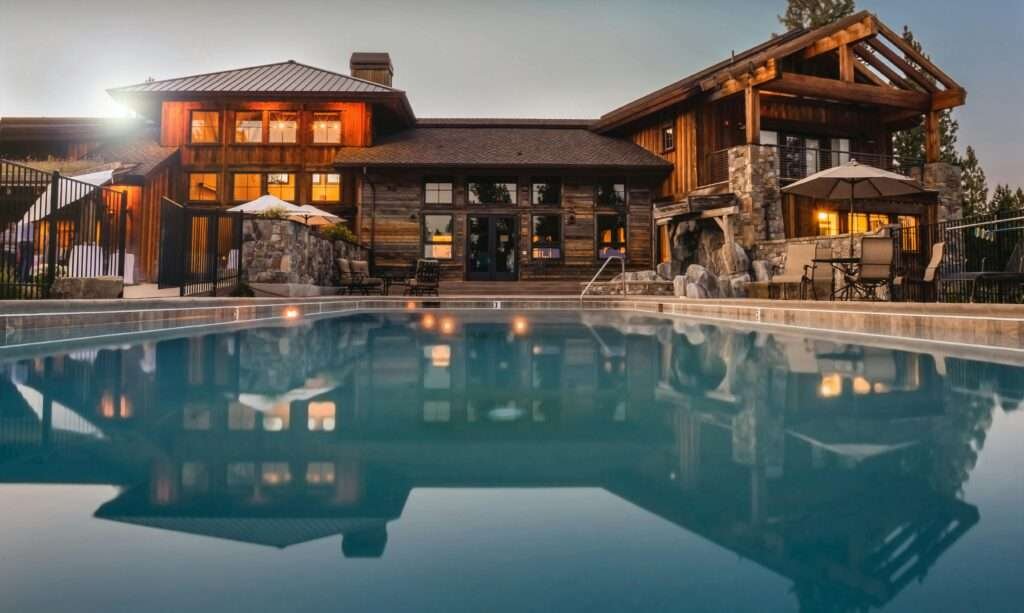Investing in high-end property is often seen as a symbol of status, wealth, and smart financial planning. But is it the right investment for you? Whether you’re eyeing that luxury penthouse in New York or a sprawling villa in the South of France, high-end property investments can offer significant returns, provided you know how to navigate this exclusive market.
What Are High-End Property Investments?
High-end property investments refer to luxury real estate that is usually valued in the top 10% of the market. These properties often feature unique architectural designs, high-end finishes, and are located in prime areas. Think multimillion-dollar estates, beachfront mansions, and exclusive penthouses in global cities.
Why Invest in High-End Properties?
High-end property investments are more than just status symbols; they can offer a substantial return on investment (ROI). One of the biggest appeals of luxury real estate is its resilience during economic downturns. People with high net worth are more likely to hold onto their luxury assets, making these investments less volatile.
Key Markets for High-End Property Investments
Luxury real estate is a global affair. Some of the best markets include:
- New York City: Known for its iconic skyline and exclusive penthouses.
- London: A key hub for international investors.
- Paris: Romantic, cultural, and lucrative for investors.
- Dubai: A fast-growing market with tax-free benefits.
- Hong Kong: One of the most expensive property markets globally.
Types of Luxury Real Estate
High-end properties come in various forms, including:
- Villas: Spacious properties with large outdoor areas.
- Penthouses: Luxurious apartments at the top of high-rise buildings.
- Estates: Expansive properties often located outside of city centers.
- Mansions: Typically larger than 5,000 square feet, often with lavish amenities.

Factors Driving Demand for High-End Property Investments
Why are high-end properties so coveted? A few factors stand out:
- Exclusivity: Owning a high-end property sets you apart from the crowd.
- Lifestyle: Luxury properties often come with access to the finest amenities and services.
- Status: It’s more than just a home; it’s a statement of success.
Investment Strategies for High-End Properties
There are two main strategies for investing in high-end properties:
- Buy-and-Hold: You purchase a property and hold it long-term, banking on appreciation.
- Flipping: Buy, renovate, and sell for a profit within a short timeframe.
Both strategies come with their own risks and rewards, but high-end properties tend to appreciate faster than the average market.
Traditional vs luxury real estate investments
The luxury real estate market is different from the regular one. Here are some of the main differences we’ve put together:
-
Investor demographics- Encompassing a wide range of property types, investors in regular real estate comprise a broad section of society. Investors in that space are usually high-net-worth folks who have a pretty ambitious vibe.
-
Market dynamics- While the regular property market is impacted by economic fluctuations such as the job market, interest rates and demographic trends, the financial stability of HNW investors typically provides a buffer for the luxury market.
-
Economic impact- Luxury real estate has the potential to transform urban areas, with high-end developments in turn delivering luxury retail, cultural and dining experiences. On the flip side, regular property plays a big role in keeping cities stable, providing affordable housing and a mix of people that helps maintain the vibe of the area.
-
Globalization- HNW investors are drawn to luxury real estate investment opportunities in major international cities, looking for stability, diversification and lucrative returns. On the other hand, regular property is more connected to the local economy.
Market trends in luxury property investments
Due to the cost-of-living issue and rising mortgage rates, the conventional residential property market has taken a major hit. However, the global luxury real estate market is expected to grow annually by 6.8% between 2024 and 2031.
For what reason is this, exactly? During economic downturns, those with less disposable income have a harder time affording to buy property, while those with higher net worth have more options, including the ability to pay with cash or avoid rate hikes altogether. Optimism and energy are running high among luxury shoppers, who see 2024 as an excellent year to purchase property.
However, which trends are now ruling the market for high-end real estate?
In today’s market, green and sustainable homes that use renewable energy, materials, and cutting-edge building practices are in high demand among investors.
Quite a few things are being fulfilled by smart technology, such as top-tier lighting and security systems.
Wealthy buyers are on the lookout for high-end residences with health and exercise centres.
Luxury real estate outside of major cities, especially with access to parks and other outdoor amenities, will attract buyers, tenants, and investors in the wake of the epidemic and the ensuing growth of digital nomadism.
How to Evaluate a High-End Property
Before diving in, you need to evaluate a luxury property meticulously. Here are key factors to consider:
- Location: Is it in a prime, sought-after area?
- Architecture: Is the design timeless and unique?
- Amenities: What high-end features does it offer (private pools, smart homes, etc.)?
Risks Associated with High-End Property Investments
Like any investment, luxury real estate comes with risks. These include:
- Market volatility: High-end properties can lose value in downturns.
- High maintenance costs: Luxury properties come with significant upkeep expenses.
- Liquidity issues: Selling a high-end property can take longer compared to mid-market homes.
Financing High-End Property Investments
Financing a high-end property isn’t the same as buying a regular home. You’ll need to explore different mortgage options, such as:
- Jumbo loans: These exceed the limits set by traditional lenders.
- Private lending: Wealthy individuals often turn to private financiers to avoid public mortgage records.
Role of Real Estate Agents in High-End Property Investments
Having a seasoned real estate agent who specializes in luxury properties is crucial. They can:
- Identify hidden gems that aren’t listed on public platforms.
- Negotiate deals that save you money in the long term.
Tax Implications of Investing in High-End Properties
When you buy high-end real estate, taxes can significantly impact your investment. Key considerations include:
- Property taxes: High-end properties often have higher tax rates.
- Deductions: Mortgage interest and property taxes may be deductible, reducing your overall tax burden.

The Impact of Economic Trends on Real Estate Property Markets
Global economic trends can dramatically affect the luxury real estate market. For example:
- Interest rates: Higher rates can cool down even the hottest markets.
- Economic growth: In times of growth, high-end properties appreciate faster.
Emerging Trends in Real Estate Property Investments
Some emerging trends shaping the future of luxury real estate include:
- Sustainability: Eco-friendly luxury homes are in high demand.
- Smart Homes: Properties equipped with the latest technology command higher prices.
Conclusion
Investing in high-end property is a decision that requires careful thought. It’s not just about owning a luxury home; it’s about making an investment that aligns with your financial goals. While the returns can be substantial, the risks should not be overlooked. If you have the capital, the right strategy, and a keen understanding of the market, high-end property investments could be the key to building wealth.
FAQs
1. What is considered a high-end property?
A high-end property is typically in the top 10% of the real estate market, featuring luxury amenities, prime locations, and significant square footage.
2. Are high-end properties a good investment?
Yes, they can be. High-end properties often appreciate faster and are less volatile during economic downturns.
3. What are the risks of investing in luxury real estate?
Risks include market volatility, high maintenance costs, and liquidity issues when trying to sell.
4. How do I finance a high-end property?
You can finance through jumbo loans, private lenders, or alternative financing options tailored for high-net-worth individuals.
5. Where are the best markets for high-end property investments?
Some of the top markets include New York, London, Paris, Dubai, and Hong Kong.




